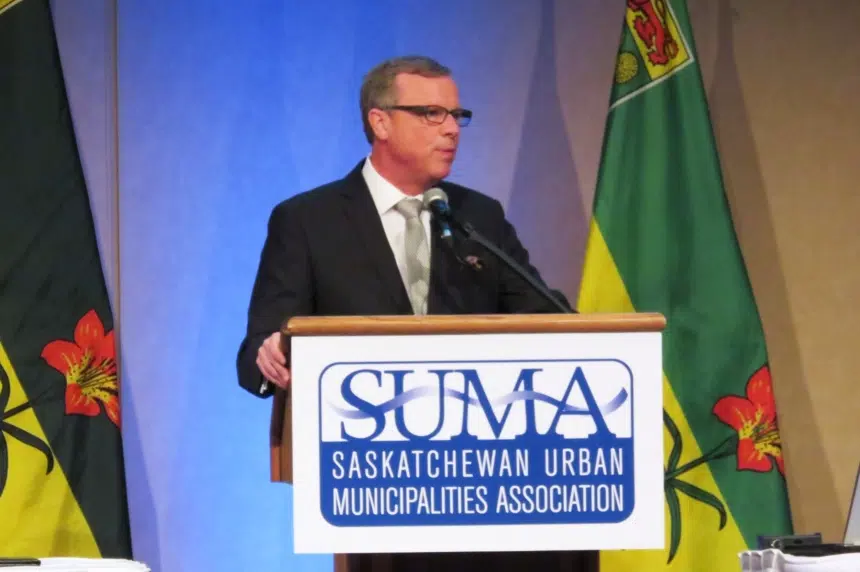Saskatchewan Premier Brad Wall says everything is on the table when it comes to bringing a $1.2-billion deficit to balance.
Wall made the remarks during a speech to the Saskatchewan Urban Municipalities Association in Saskatoon Monday.
“It’s not anything we’re wanting to do,” he told reporters afterwards. “But we need to highlight all of the options.”
The premier noted all options are being considered, including tax increases and service cuts.
Wall credited the boost in the projected deficit to an increase in crop insurance claims – around $250 million higher than expected.
The claims came after nearly one million acres of crops were trapped by early October snowfall.
Previously, the deficit was pegged at $1 billion.
Possible health care, education cuts
One scenario Wall labelled as “middle of the road” for balancing the budget includes drastic cuts to health care and education. The option includes terminating 4,900 health care workers in the province.
The premier said they’re hoping to avoid that option, as it could jeopardize quality of life for Saskatchewan’s most vulnerable.
“But it’s on the table, it has to be,” he said. “We made a commitment in the campaign (to balance the budget), and I take those very seriously.”
Wall was also asked whether sacrificing health care and education jobs would be worth it to balance the budget in 2017-18.
“Dramatic cuts in those areas kind of goes counter to the growth plan we have in place,” he said. “We’re going to do everything we can to avoid this situation.”
Wall warned SUMA delegates that PST revenues are down, meaning the money transferred from the province to municipalities will also decrease.
He asked representatives to look for cuts to their own budgets to help chip away at the provincial deficit.
SUMA, opposition react
SUMA’s Interim President Randy Goulden said she’s concerned about the province’s fiscal situation and the burden being placed on municipalities.
“There is nowhere to go, there is nowhere to download to,” she said. “We can either increase our property taxes and fees on services, or we decrease services to our citizens.”
Goulden said the “everything on the table” approach is how urban municipalities look at their budget every year since, by law, a city council cannot run a deficit.
Opposition NDP Leader Trent Wotherspoon said the reason Wall is facing such hard choices is because of financial mismanagement in boom years.
“Right now, we have to be supporting our classrooms, supporting our municipalities, supporting health care,” he said.
Wotherspoon criticized the government for making “bad deals” on infrastructure projects, pointing to the Global Transportation Hub scandal and the construction of the Regina bypass.
“These kind of reckless decisions have consequences, and we’re seeing them now.”











